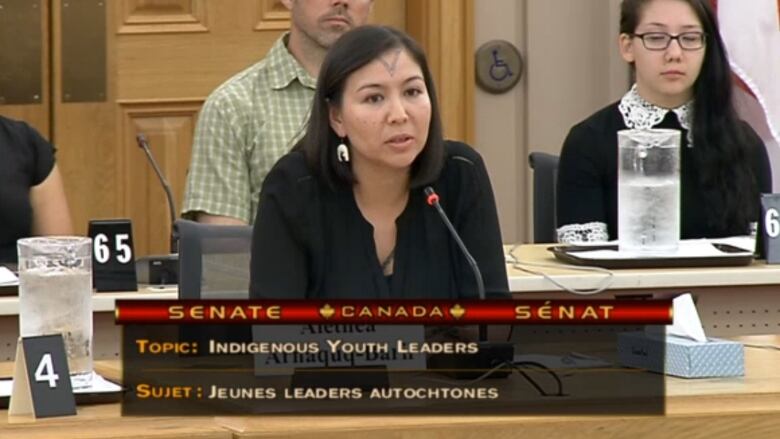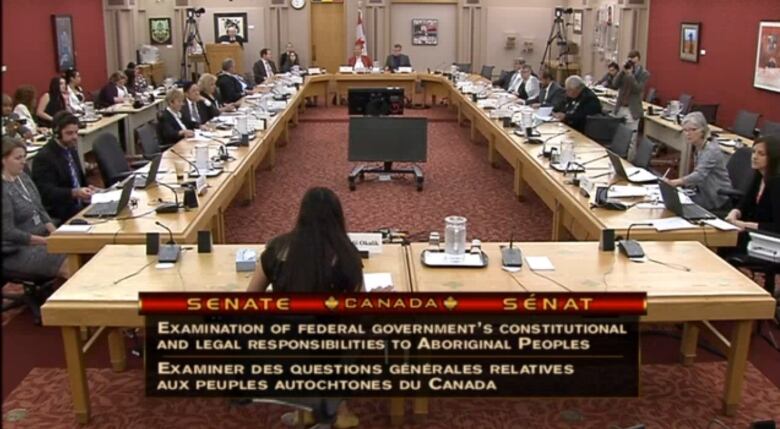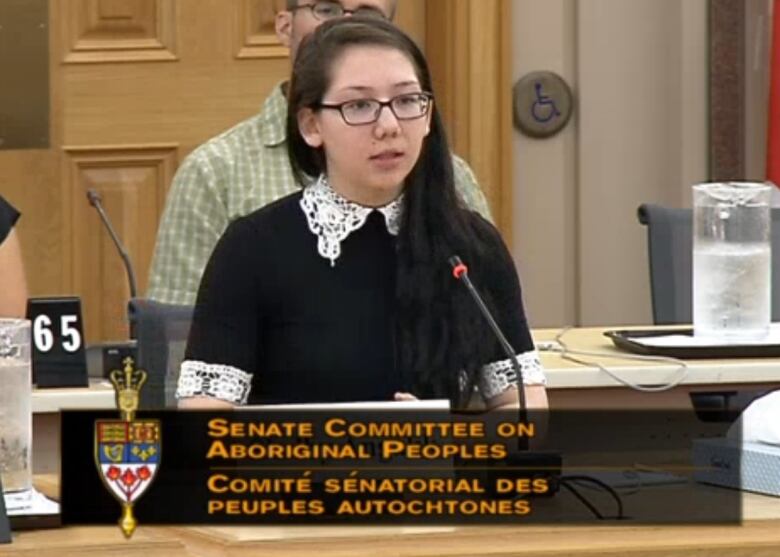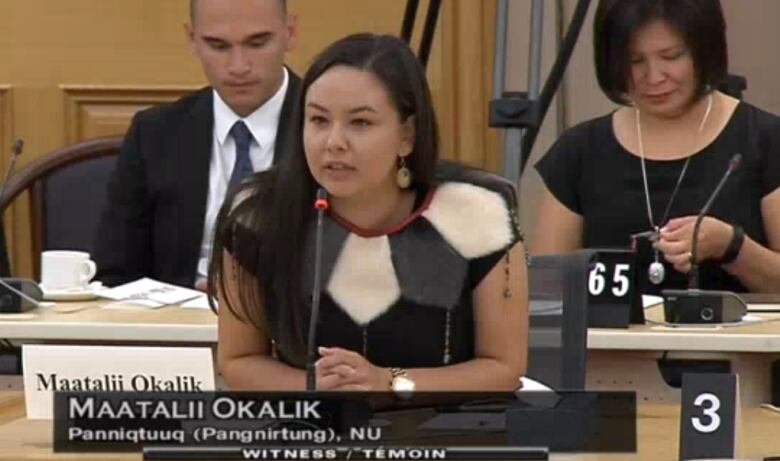'Solve it for real:' Inuit youth push for change on National Aboriginal Day
3 young women from Nunavut speak to the Standing Senate Committee on Aboriginal Peoples

Intergenerational trauma, inadequate education and a lack of community infrastructure were only a few of the concerns voiced by Indigenous youth leaders at the Standing Senate Committee on Aboriginal Peoples in Ottawa on Tuesday.
The committee said the event was a chance for "youth to place their stories on the public record to celebrate the 20th anniversary of National Aboriginal Day."
But each of the young leaders went beyond personal anecdotes.
"Due to many racist policies of the Canadian government, enabled by Canadian citizens, we have a housing crisis all across the North," said Iqaluit's Alethea Arnaquq-Baril.
"While we were once independent, we were forced off the land and crammed into poorly planned communities."
The award-winning filmmaker, whoreceived critical acclaim for her film Angry Inuk,told senators she wantedto talk to them about the importance of supporting the arts.
"But it's hard for artists to contribute and help built strength and resilience in our communities, when victims of abuse have to live with their abusers due to housing shortage."

Using housing to tackle suicide, abuse
Inher deeply emotional 11-minute speech, Arnaquq-Baril said the lack of affordable housing is at the root of social issues facing too many Inuit.
"Our will to live can be compared to none, it runs so deep in our bones... So, why are we dying at our own hands, at the worst rates in the world?" Arnaquq-Baril said, her voice breaking.
"When some of the most resilient people in the world are dying at their own hands, what does it say about the conditions we are living in?"
The high rate of suicide among Inuit and the extensive overcrowding is a frequent subject of inquests, government fact-finding missions and statistical reports.
But Arnaquq-Barildrew on aheart-rendingexampleto illustrate the issue.
"Today, some rape victims have to choose between living with their abusers or sentencingthem to death by forcing them into the cold," she said.
"In the Arctic, that is no choice."
Inuit need 'proper schooling'
At 18,Arviat'sShelby Angalikwas the youngest of the 12 Indigenous leaders to speak at the standing committee.

Angalik took it upon herself to tackle the low literacy rates in her community, starting a library program at herschool.
"Inuit are privileged in some ways, with free health care and free schooling," she said.
"But that doesn't mean anything without proper schooling."
Acknowledging the help of her teachers, Angaliksaid Inuit Qaujimajatuqangit (traditional knowledge)has helped her overcome the challenges facing youngInuit including alcohol abuse, domestic and sexual abuse, and suicide.
Support culture and language
When Maatalii Okalik,president of the National Inuit Youth Council, made her presentation, she spoke on behalf of Inuit from across Canada.

"We assert sovereignty for thiscountry as Inuit and we have done so for thousands and thousands of years," she said.
"So for me, it doesn't really make sense sometimes when I try to understand why our quality of life is so different."
Both Okalik and Arnaquq-Barilacknowledged the efforts of national groups to address housing and mental health issues.
But Arnaquq-Baril says federal funding often "barely scratch[es] the surface."
"Solve it for real."












_(720p).jpg)


 OFFICIAL HD MUSIC VIDEO.jpg)
.jpg)



























































































